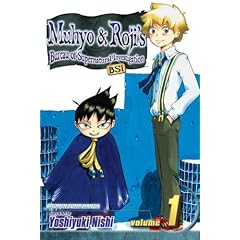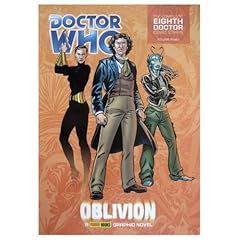
As with Skrull Kill Krew, which I reviewed earlier in the month, Marvel Boy was another mid-90s comic book that Grant Morrison wrote for Marvel Comics. Since I was not interested in Marvel in the mid-90s, regardless of who was writing for them, I passed on both of these books, which, in the apparent parlance of the contemporary internet, means that I was "boycotting" them. It wasn't until my opinion shifted enough to follow Morrison and Frank Quitely to New X Men that I reconsidered. Anyway, as with Skrull Kill Krew, I found an inexpensive used copy of the Marvel Boy collected edition at one of The Great Escape's Nashville locations, although this one cost a whole six bucks, and decided to read it.
Well... it's certainly a lot better than SKK was, but it's still a very difficult book to love. I've really started to think that there are at least two very different kinds of Morrison books - the ones where the rush of brilliant ideas overwhelms the heart and soul of the characters and the work, and the ones where you connect emotionally with the characters as they overcome whatever unbelievable obstacle that Morrison has constructed. Marvel Boy is definitely one of the former; at no point did I feel any connection with the Kree explorer Noh-Varr and his opponents Oubliette and Dr. Midas, but there were certainly occasions where that just didn't matter, so wild were the goings-on.
Briefly, the story's about an explorer from another universe forced to survive on Earth after his party's ship is blasted down and the rest of the crew killed. He awakes in the hands of an insane, unbelievably wealthy industrialist obsessed with alien life - think the Christopher Eccleston "Dalek" episode of Doctor Who with superpowers. What follows is incredibly high-concept craziness, not least of which is the appearance of a "living corporation" that also escaped from the wreckage and quickly begins subsuming our planet's economy.
Overall, it's a very good story, and beautifully illustrated by J.G. Jones, but everybody in the book has a heart as black as coal, and even if Morrison afforded us the chance to sympathize with anyone, you wouldn't want to.
The paperback edition of Marvel Boy is out of print; the link above points to a new hardcover collection. And speaking of collected edition disappointments...

Well, here's an aggravation. There are twelve issues of Morrison and Frank Quitely's stunning take on Superman, which appeared under DC's "All-Star" imprint, hence "All-Star Superman." The first six are available in hardback and paperback, with a hardcover set of the second six due in February. Clearly, these could all fit under one set of covers, but evidently selling ten million or so copies of the 12-issue Watchmen hasn't persuaded DC that such a sales strategy would work here. This is why I don't own Darwyn Cooke's said-to-be-amazing New Frontier, because the only way to get the darn thing in one edition is to pay $75 for a special, oversized version.
If you can be persuaded to buy these two low-cost books, or track down the individual issues, you will certainly be pleased with what you find. This is the only Superman story you need ever read. It's a beautiful tale of jealousy and spite leading to optimism and promise, as Lex Luthor finally succeeds in finding a way to kill his hated rival and the Man of Steel must complete twelve impossible tasks before he goes.
Morrison doesn't try, mercifully, to fit this tale into the existing soap opera continuity of the DC universe. It exists on its own, taking characters here and there from previous comics or cartoons and presenting a perfect, "definitive" version of them. Here, Superman is the much-loved protector of humanity, while also working as the planet's most forward-thinking scientist, caring for strange alien species in his Fortress of Solitude and showing humility while learning friendship with the staff of the Daily Planet.
I can't tell you how wonderful this story is. I've said before that Morrison foreshadows better than anybody else in the business, and he might even outdo himself here, with little clues and hints sprinkled throughout the narrative that all come together in an unbelievable, awesome climax. But it's the little human moments - the ones that Marvel Boy misses with its focus on the big picture - which turn this great story into one of the decade's classics. Clark Kent removing his glasses in front of Luthor, appealing to him to finally do the right thing, Lois reflecting on the senses she no longer possesses as her twenty-four hour superpowers pass, the "imperfect" Bizarro named Zibarro and his pathetic, teenage-emotional poetry, the arrival of law and order in the Phantom Zone...
And then there's issue ten, and it's a bit busy, with Morrison's storytelling at its most non-linear, but there's no question this is the best single issue of Superman ever written. Taken as its own, every home should own it. Taken as part of the overall story, it is downright fantastic, and I think everybody reading this should check it out.
(Related: Zack Smith recently concluded a mammoth, wonderful, ten-part interview with Morrison over at Newsarama. The first part is here, although readers might find it a little difficult navigating to the other pages of the interview. It's worth the effort, though!)
(Originally posted November 11, 2008 at hipsterdad's LJ.)


